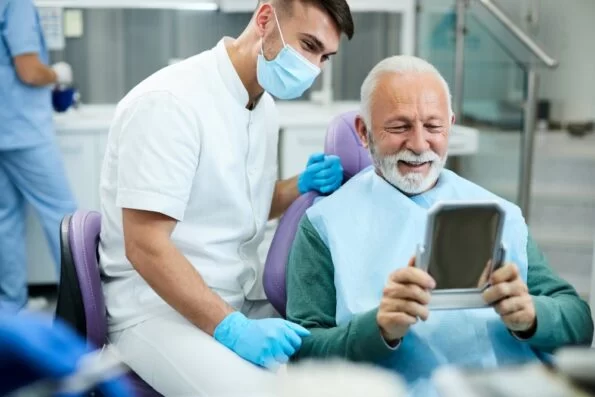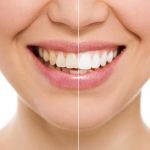
Why Seniors Need Special Dental Care and How to Address Their Needs
As we age, our bodies go through many changes. Some of these changes are more visible, like graying hair or wrinkles, but others, like the changes in our teeth and gums, may not be as immediately obvious. I first realized how important senior dental care was when I helped my grandmother with her oral health routine. She had always been diligent about brushing her teeth, but as she got older, she started having more dental issues, which I didn’t fully understand at the time. Over the years, I’ve learned a lot about why seniors need special dental care and how we can help them maintain healthy smiles as they age. Let me share what I’ve learned and how it can make a big difference in the lives of older adults.
1. The Impact of Aging on Oral Health
When we talk about aging and oral health, it's important to understand how the natural process of growing older can affect the mouth. For my grandmother, as her age increased, she faced more challenges with her teeth and gums. It's not just about cavities and gum disease—seniors face a variety of oral health problems that require special attention and care. Here are a few common issues I’ve seen:
1.1 Dry Mouth
Dry mouth, or xerostomia, is a common condition among seniors. It happens when the salivary glands don’t produce enough saliva, leading to a dry, uncomfortable mouth. This condition can be caused by medications, health conditions like diabetes, or even natural aging processes. I noticed that my grandmother often complained of a dry mouth, which made it hard for her to eat and speak comfortably. The lack of saliva also increases the risk of tooth decay and gum disease, so finding ways to manage this condition is crucial.
1.2 Gum Disease
As we age, the risk of developing gum disease increases. Gum disease, or periodontal disease, is an infection of the tissues that hold your teeth in place. It can lead to tooth loss if left untreated. Seniors are more likely to develop gum disease due to factors such as reduced immunity, difficulty brushing effectively, or neglecting regular dental checkups. I saw how gum disease affected my grandmother’s ability to keep her teeth healthy, which made me realize just how vital regular dental visits are for seniors.
1.3 Tooth Loss
Tooth loss is another issue that affects many seniors. As time passes, teeth may weaken or become damaged, leading to decay or breakage. For my grandmother, this became a reality when one of her back molars became loose. Tooth loss can impact a senior's ability to chew food properly, leading to difficulty eating and digesting certain foods. This, in turn, can affect overall health and nutrition. Restorative dental procedures, like implants or dentures, can help, but they require specialized care and attention to ensure a comfortable fit.
1.4 Sensitivity and Discomfort
Older adults often experience increased tooth sensitivity due to worn enamel, gum recession, or cavities. Sensitivity can make it difficult for seniors to enjoy hot or cold foods and beverages. My grandmother, for example, had to avoid drinking ice-cold water because it caused her teeth to hurt. Managing tooth sensitivity is an essential part of senior dental care, and it requires specific toothpaste or treatments that cater to the needs of aging teeth.
2. Special Dental Needs for Seniors
Because seniors face such unique challenges when it comes to oral health, they require special care and attention from their dentist. After observing my grandmother’s experiences, I came to understand that senior dental care is not just about addressing immediate issues like cavities; it's about maintaining long-term oral health. Here are some key considerations for seniors:
2.1 Regular Dental Checkups
One of the most important ways to care for senior teeth is through regular dental checkups. I noticed that my grandmother was more likely to develop dental problems when she missed her appointments. Even if there are no obvious signs of problems, a dentist can spot early issues, such as cavities or gum disease, before they become serious. For seniors, it’s crucial to have checkups every six months or as recommended by their dentist. Early detection can make a huge difference in preventing major dental problems later on.
2.2 Proper Oral Hygiene Techniques
Proper oral hygiene is just as important for seniors as it is for everyone else, but as we age, it may become harder to brush and floss effectively. My grandmother had difficulty holding onto her toothbrush due to arthritis, which made it harder for her to reach all areas of her mouth. Fortunately, there are tools available, such as electric toothbrushes with larger handles, that can make brushing easier for seniors. It’s also important to encourage flossing and mouth rinsing to remove food particles and plaque buildup. For seniors with limited dexterity, there are also special flossing tools that can help.
2.3 Addressing Dry Mouth
As I mentioned earlier, dry mouth is a common problem for seniors, and it can lead to various oral health issues. To help manage this, my grandmother used saliva substitutes and mouthwashes designed to keep the mouth moist. Drinking plenty of water throughout the day and chewing sugar-free gum also helped stimulate saliva production. Additionally, avoiding caffeine and tobacco, which can exacerbate dry mouth, became an important part of her oral health routine.
3. The Role of Diet in Senior Oral Health
Nutrition plays a significant role in oral health, and this becomes even more critical as we age. Seniors often struggle with a balanced diet due to tooth loss or difficulty chewing. For my grandmother, eating softer foods became necessary, but she also had to ensure that her diet was rich in vitamins and minerals that support dental health, such as calcium and vitamin D. Foods like dairy products, leafy greens, and fortified cereals help keep teeth strong and reduce the risk of bone loss, especially in the jaw.
It’s also important for seniors to limit sugary and acidic foods that can contribute to tooth decay. Since my grandmother had a sweet tooth, I made sure to replace sugary snacks with healthier options, such as fresh fruits and nuts, which are not only good for her teeth but also promote overall well-being.
4. Restorative Dental Care for Seniors
In some cases, seniors may need restorative dental treatments, such as fillings, crowns, dentures, or even implants. My grandmother eventually required dentures after losing several teeth, and I saw firsthand how transformative these appliances can be. They not only improve the ability to chew and speak but also help maintain facial structure and appearance. It’s important to find a dentist who specializes in restorative care for seniors, as the process of getting dentures or implants is different from the care needed for younger patients. Special attention is required to ensure that these restorations fit properly and remain comfortable over time.
5. How to Choose a Dentist Who Specializes in Senior Care
When looking for a dentist for a senior, I found it important to choose one who is experienced in treating older patients. A dentist who specializes in senior care will understand the unique needs and challenges that come with aging, such as dry mouth, gum disease, and tooth loss. It’s also a good idea to seek out a dentist who is compassionate and patient, as this can make the dental visits more comfortable for seniors who may have anxiety about dental procedures.
Lastly, I recommend finding a dental office that is accessible and senior-friendly. This includes an office with easy access, comfortable seating, and staff who are experienced in assisting seniors with mobility or hearing impairments. I was fortunate to find a practice where the staff went above and beyond to make sure my grandmother felt comfortable and supported during every visit.
Senior dental care is essential for maintaining overall health and quality of life in older adults. By taking proactive steps and addressing the unique needs of seniors, we can ensure that their smiles remain healthy and bright throughout their lives. If you’re looking for a dental practice that specializes in senior care, Dentistry Toothtruth is a great resource for finding a dentist who can meet your specific needs.







 Open Door Family Medical Center- Sleepy Hollow4.0 (215 review)
Open Door Family Medical Center- Sleepy Hollow4.0 (215 review) Hanson Place Dental1.0 (441 review)
Hanson Place Dental1.0 (441 review) Nak4 Orthodontics Arlington Heights4.0 (253 review)
Nak4 Orthodontics Arlington Heights4.0 (253 review) Red Oak Dentistry: Dr. Michael King4.0 (74 review)
Red Oak Dentistry: Dr. Michael King4.0 (74 review) Blissful Dental4.0 (440 review)
Blissful Dental4.0 (440 review) ADVANCED SMILES PC4.0 (205 review)
ADVANCED SMILES PC4.0 (205 review) The Importance of Oral Health Education During Pregnancy for a Healthy Pregnancy
The Importance of Oral Health Education During Pregnancy for a Healthy Pregnancy Best Tips for Brushing Your Teeth Properly for Healthy Gums: Essential Techniques for Oral Health
Best Tips for Brushing Your Teeth Properly for Healthy Gums: Essential Techniques for Oral Health Why Skipping Dental Checkups Can Lead to Bigger Oral Health Problems
Why Skipping Dental Checkups Can Lead to Bigger Oral Health Problems Advantages of Porcelain Dental Restorations
Advantages of Porcelain Dental Restorations How Can Diabetes Cause Tooth and Gum Problems? Preventing and Managing Oral Health Issues
How Can Diabetes Cause Tooth and Gum Problems? Preventing and Managing Oral Health Issues Healthy Habits for Promoting Good Oral Health and Hygiene: Tips for a Healthy Smile
Healthy Habits for Promoting Good Oral Health and Hygiene: Tips for a Healthy Smile